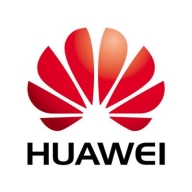

HPE and Huawei Ethernet Switches compete in the networking solutions category. HPE Ethernet Switches seem to have the upper hand due to their extensive features and longevity offer, although Huawei introduces a strong cost-effective alternative.
Features: HPE Ethernet Switches offer high configurability, a lifetime warranty, and robust security protocols. They integrate well with existing systems and are known for their ease of deployment. Huawei Ethernet Switches stand out with their affordability and reliability. They come with useful built-in features, efficient management capabilities, and do not require additional purchases for basic features.
Room for Improvement: HPE could enhance their technical support, user interface, and increase routing capabilities. Users have also mentioned stability issues that need addressing. Huawei should focus on improving documentation, particularly to overcome language barriers, and provide smoother firmware updates. Their marketing strategies to highlight product features could also be improved.
Ease of Deployment and Customer Service: HPE Ethernet Switches are mostly deployed on-premises, with reports of a straightforward setup process, though responses from technical support can be delayed. Huawei Switches offer a simple on-premises setup, more cloud options, and receive positive feedback for customer service, though there may be language-related concerns.
Pricing and ROI: HPE Ethernet Switches, despite higher initial costs, offer a good ROI due to their lifetime warranty and absence of recurring fees. Huawei provides competitively priced switches, often cheaper than alternatives like Cisco, offering cost advantages and good ROI, but advanced features may require additional licensing.
| Product | Market Share (%) |
|---|---|
| HPE Ethernet Switches | 3.4% |
| Huawei Ethernet Switches | 3.5% |
| Other | 93.1% |

| Company Size | Count |
|---|---|
| Small Business | 62 |
| Midsize Enterprise | 19 |
| Large Enterprise | 31 |
| Company Size | Count |
|---|---|
| Small Business | 30 |
| Midsize Enterprise | 13 |
| Large Enterprise | 20 |
HP has created the most open, integrated and software-defined networking portfolio and ecosystem of its kind – driving simplification with networks that understand, adapt to and protect your business applications in real-time. Only HP extends the momentum of software-defined networking everywhere–from the mobile edge to the heart of data centers.
We monitor all Ethernet Switches reviews to prevent fraudulent reviews and keep review quality high. We do not post reviews by company employees or direct competitors. We validate each review for authenticity via cross-reference with LinkedIn, and personal follow-up with the reviewer when necessary.